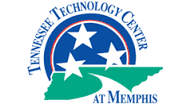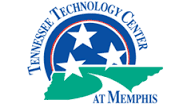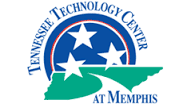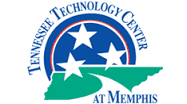What do they do?
Provide technical assistance to computer users. Answer questions or resolve computer problems for clients in person, via telephone, or electronically. May provide assistance concerning the use of computer hardware and software, including printing, installation, word processing, electronic mail, and operating systems.
Also known as:
Applications Analyst, Computer Specialist, Computer Support Specialist, Computer Tech (Computer Technician), Desktop Support Analyst, Desktop Support Engineer, Desktop Support Specialist, Desktop Support Technician (Desktop Support Tech), Help Desk Analyst, Help Desk Coordinator, Help Desk Tech (Help Desk Technician), IS Tech (Information Systems Technician), IT Analyst (Information Technology Analyst), IT Generalist (Information Technology Generalist), IT Specialist (Information Technology Specialist), IT Support Analyst (Information Technology Support Analyst), IT Support Specialist (Information Technology Support Specialist), IT Tech (Information Technology Technician), PC Consultant (Personal Computer Consultant), PC Specialist (Personal Computer Specialist), PC Support Tech (Personal Computer Support Technician), PC Tech (Personal Computer Technician), Support Specialist, Technical Support Representative (Technical Support Rep), Technical Support Specialist, User Support Specialist
-
0.8%
Change
Ranks #51 in job growth rate1,900Job Openings
Ranks #10 in net job growth
Looking for colleges that offer a specific major? Use the College Match Tool to find your best-matched schools and discover your estimated Net Price!
- Bachelor's degree (38%)
- Some college, no degree (24%)
- Associate's degree (16%)
- Master's degree (10%)
- High school diploma equivalent (10%)
- Doctorate or Professional Degree (1%)
- Less than high school diploma (1%)
People in this career often have these skills:
- Reading Comprehension - Understanding written sentences and paragraphs in work-related documents.
- Active Listening - Giving full attention to what other people are saying, taking time to understand the points being made, asking questions as appropriate, and not interrupting at inappropriate times.
- Speaking - Talking to others to convey information effectively.
- Critical Thinking - Using logic and reasoning to identify the strengths and weaknesses of alternative solutions, conclusions, or approaches to problems.
- Complex Problem Solving - Identifying complex problems and reviewing related information to develop and evaluate options and implement solutions.
- Writing - Communicating effectively in writing as appropriate for the needs of the audience.
People in this career often know a lot about:
- Computers and Electronics - Knowledge of circuit boards, processors, chips, electronic equipment, and computer hardware and software, including applications and programming.
- Customer and Personal Service - Knowledge of principles and processes for providing customer and personal services. This includes customer needs assessment, meeting quality standards for services, and evaluation of customer satisfaction.
- Telecommunications - Knowledge of transmission, broadcasting, switching, control, and operation of telecommunications systems.
- English Language - Knowledge of the structure and content of the English language including the meaning and spelling of words, rules of composition, and grammar.
- Education and Training - Knowledge of principles and methods for curriculum and training design, teaching and instruction for individuals and groups, and the measurement of training effects.
- Mechanical - Knowledge of machines and tools, including their designs, uses, repair, and maintenance.
- Engineering and Technology - Knowledge of the practical application of engineering science and technology. This includes applying principles, techniques, procedures, and equipment to the design and production of various goods and services.
- Administration and Management - Knowledge of business and management principles involved in strategic planning, resource allocation, human resources modeling, leadership technique, production methods, and coordination of people and resources.
- Administrative - Knowledge of administrative and office procedures and systems such as word processing, managing files and records, stenography and transcription, designing forms, and workplace terminology.
People in this career often have talent in:
- Oral Comprehension - The ability to listen to and understand information and ideas presented through spoken words and sentences.
- Written Comprehension - The ability to read and understand information and ideas presented in writing.
- Oral Expression - The ability to communicate information and ideas in speaking so others will understand.
- Written Expression - The ability to communicate information and ideas in writing so others will understand.
- Near Vision - The ability to see details at close range (within a few feet of the observer).
- Problem Sensitivity - The ability to tell when something is wrong or is likely to go wrong. It does not involve solving the problem, only recognizing that there is a problem.
- Deductive Reasoning - The ability to apply general rules to specific problems to produce answers that make sense.
- Information Ordering - The ability to arrange things or actions in a certain order or pattern according to a specific rule or set of rules (e.g., patterns of numbers, letters, words, pictures, mathematical operations).
- Speech Recognition - The ability to identify and understand the speech of another person.
- Speech Clarity - The ability to speak clearly so others can understand you.
- Inductive Reasoning - The ability to combine pieces of information to form general rules or conclusions (includes finding a relationship among seemingly unrelated events).
People in this career often do these activities:
- Monitor computer system performance to ensure proper operation.
- Install computer hardware.
- Read documents to gather technical information.
- Resolve computer software problems.
- Collaborate with others to resolve information technology issues.
- Provide technical support for software maintenance or use.
- Install computer software.
- Maintain computer hardware.
- Collaborate with others to determine design specifications or details.
- Test software performance.
- Document operational activities.
- Evaluate utility of software or hardware technologies.
- Provide recommendations to others about computer hardware.
- Recommend changes to improve computer or information systems.
- Teach others to use computer equipment or hardware.
- Train others in computer interface or software use.
- Test computer hardware performance.
- Conduct research to gain information about products or processes.
- Update knowledge about emerging industry or technology trends.
- Supervise information technology personnel.
- Participate in staffing decisions.
- Modify software programs to improve performance.
This page includes data from:

 Occupation statistics: USDOL U.S. Bureau of Labor Statistics Occupational Employment Statistics
Occupation statistics: USDOL U.S. Bureau of Labor Statistics Occupational Employment Statistics








